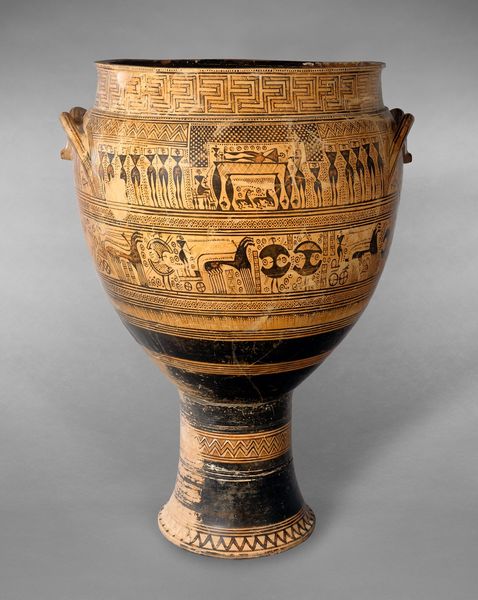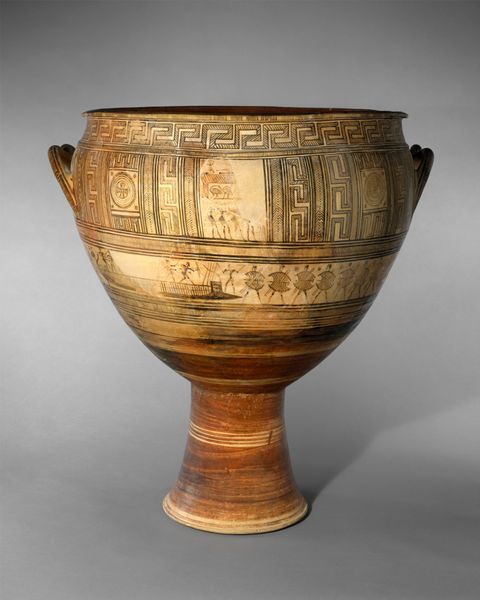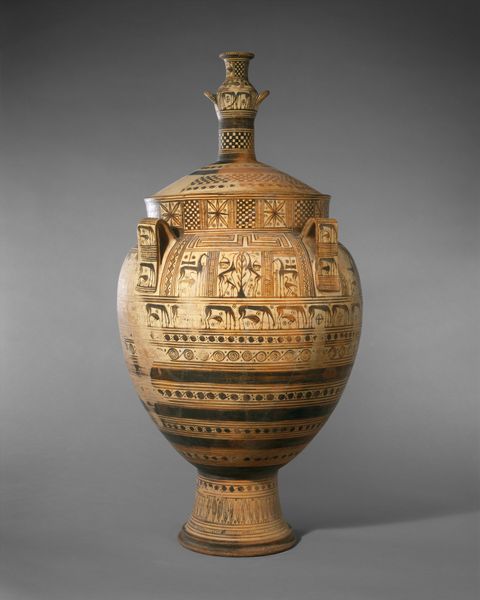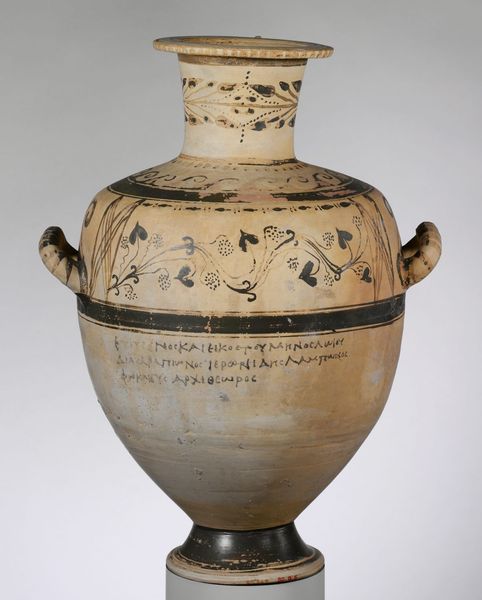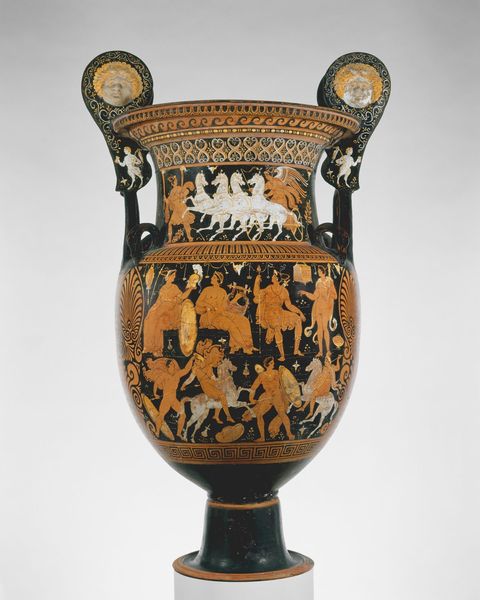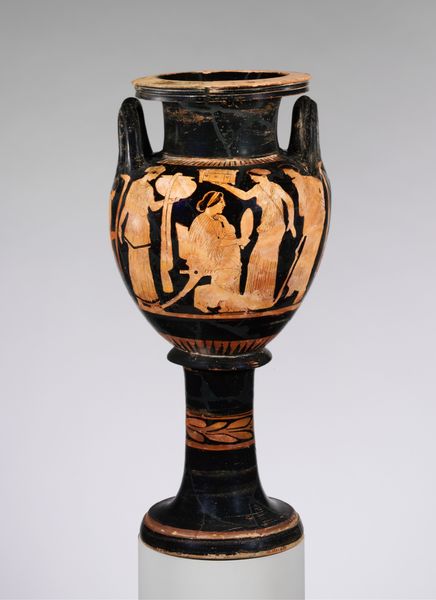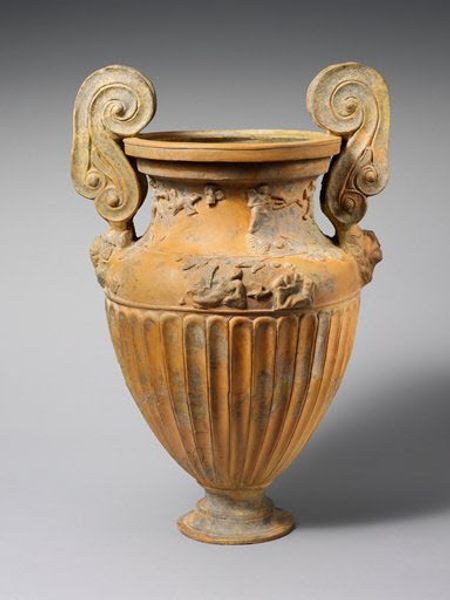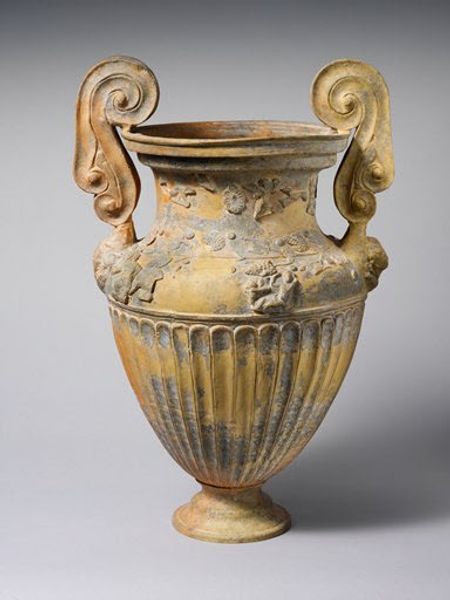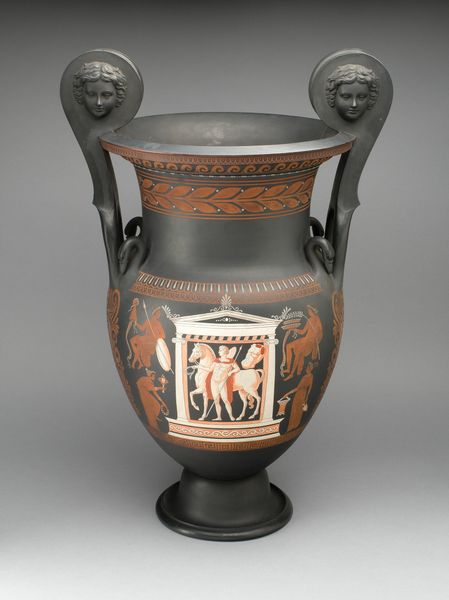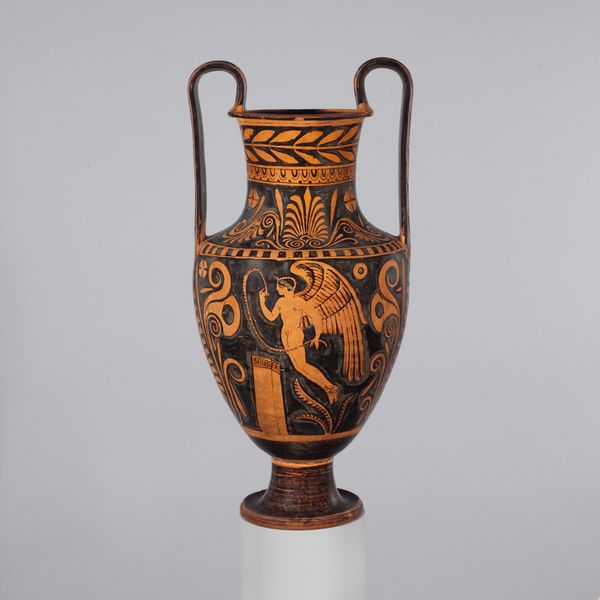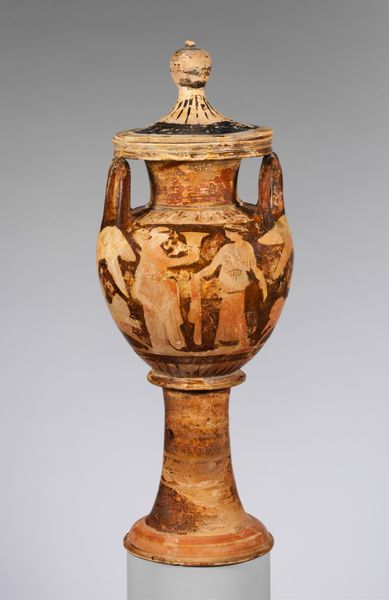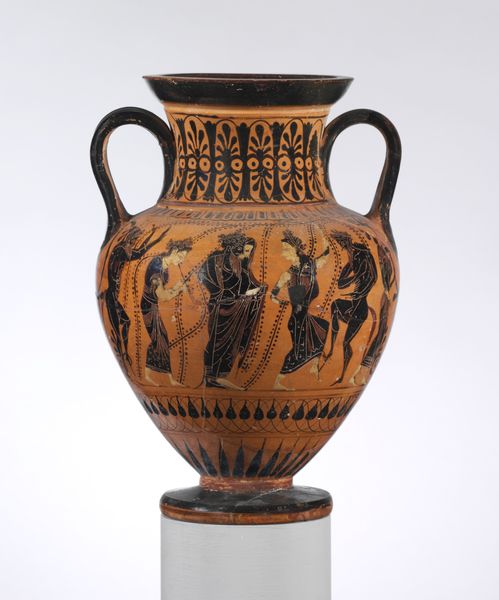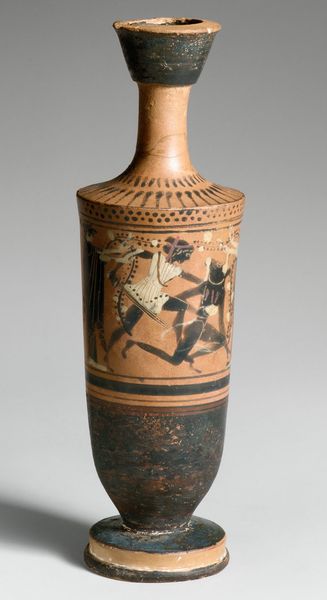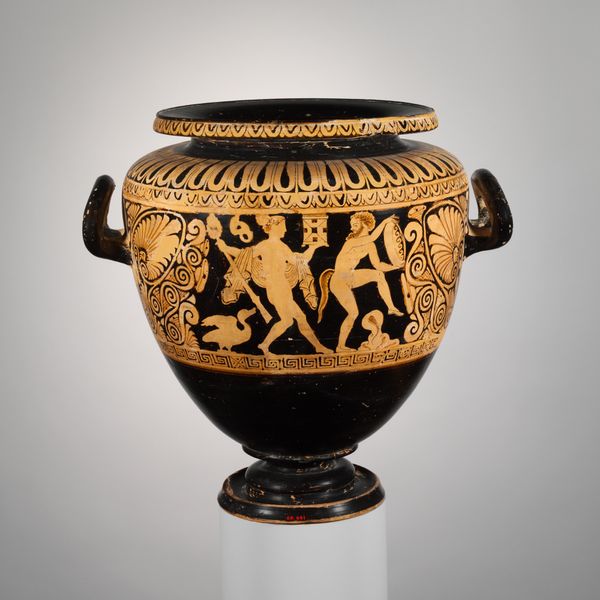
ceramic
#
greek-and-roman-art
#
ceramic
#
figuration
#
roman-art
#
geometric
#
ancient-mediterranean
#
watercolour illustration
Dimensions: H. 51 3/8 in. (130.5 cm) diameter of mouth 32 1/2 in. (82.5 cm)
Copyright: Public Domain
This terracotta krater was made by the Trachones Workshop, though we don't know exactly when. A krater like this would have been formed by hand using coils of clay, then fired to harden it. The material itself, terracotta, dictates a lot about the piece. Its earthy tone and porous texture give it a grounded feel, while the painted figures add a narrative dimension. Notice the decoration – processions of figures and horses, geometric patterns – all carefully applied. These painted scenes were not just decorative, but integral to the vessel's function. The creation of such a large, elaborate vessel involved a community of labor, from the extraction of the clay to the final firing. It reflects not only the skill of the Trachones Workshop, but also the social context in which it was made and used. Understanding the krater isn't just about appreciating its aesthetics, but about recognizing the collective effort, material knowledge, and cultural values it embodies.
Comments
No comments
Be the first to comment and join the conversation on the ultimate creative platform.
